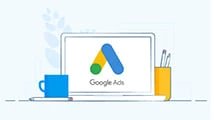Starting your digital marketing career? You’re in for an exciting journey of daily learning and professional growth. Digital marketing promotes products, services, and brands through online channels, reaching audiences globally. It includes tactics like SEO, PPC, content marketing, email marketing, social media marketing, and mobile app marketing.
While the industry is dynamic and rewarding, managing various elements can be overwhelming, especially for beginners. Capturing users’ attention amid fierce competition and reaching the right audience is a key challenge.
As technology and sales techniques evolve, digital marketing will continue to grow. It might seem daunting, but it’s a field filled with opportunities.
To help you get started, we’ve put together the top 10 tips for digital marketing beginners. Let’s dive in and get some valuable insights!
List of Digital Marketing Tips for Beginners:
- Understand Your Marketing Goals and Target Audience
- Build a Strong Social Media Presence
- Do Detailed Research
- Create Relevant Content
- Optimize Your Website
- Use Email Marketing
- Integrate Marketing Across Different Platforms
- Leverage the Power of Digital Marketing Tools
- Use Video Marketing
- Get on Google My Business

Scarcity Marketing: Increase Your Sales Without More Traffic.
Last Updated: 2022-04-19
Discover How To Create Fixed Dates, Recurring, And Evergreen Marketing Campaigns And Skyrocket Your Conversions
1. Understand Your Marketing Goals and Target Audience:
Before starting a digital marketing project, consider these key factors:
- What are your marketing goals?
- What do you want to achieve?
- Who is your target audience?
- What are their tastes, interests, and preferences?
Answering these questions will help you tailor your campaigns. Focus on a specific audience segment based on criteria like gender, age, location, and income.
For example, if you’re promoting bridal wear, target brides-to-be. Use tools and market research to understand your customers’ buying behaviour’s and create a seamless experience.
Knowing your ideal customers helps refine your strategies and achieve better results by delivering the right product at the right time and place.
2. Build a Strong Social Media Presence:
Many potential customers spend a lot of time on social media platforms like Instagram, Twitter, and Facebook, where they connect with friends, follow trends, discover brands, and make purchases. If your digital marketing strategy doesn’t include social media, you’re missing a major opportunity.
Social media is essential for engaging with your audience and building interactions. Each platform has its strengths and weaknesses, so choose the ones that best fit your brand and goals. For B2B, LinkedIn is ideal, while Instagram and Facebook are great for B2C.
These platforms are also effective for promoting blogs and services, building brand loyalty, and connecting with a global audience affordably.
Even those who aren’t tech-savvy can use social media effectively with the right skills and knowledge. Key tips include:
- Select the right platforms and communities for your target audience.
- Monitor trends and popular content.
- Post regularly to engage, inform, and entertain.
- Align your content with your audience’s interests.
- Respond to comments and feedback.
- Share high-quality images and videos.
3. Do Detailed Research:
When it comes to digital marketing tips for beginners, research is crucial. After setting your goals and identifying your audience, dive into thorough research. Understand market trends, consumer demands, effective marketing strategies, target keywords, and other key factors.
Use SEO tools to discover relevant keywords and learn which social media platforms your audience prefers and what content they engage with. The more informed you are about the industry and market, the better your strategies and campaigns will be.
Additionally, research your competitors to see what works for them and what doesn’t, helping you refine your approach.
4. Create Relevant Content:
In the digital world, content is crucial. It engages your audience, addresses their questions, and improves website rankings. To maximize impact, regularly post compelling and relevant content across social media, websites, and other platforms.
HubSpot data suggests publishing content at least once a week for better ROI; less frequent posting may reduce effectiveness. Create content that attracts visitors, encourages clicks on CTAs, and adds value to your audience. It should balance entertainment and information and can include infographics, blogs, videos, or images.
Key content creation tips include:
- Tailor content for each platform.
- Ensure it’s informative, interesting, and creative.
- Use visuals to boost engagement.
- Address audience needs while promoting your brand.
- Keep content original and aligned with your brand’s message.
- Encourage user-generated content.
- Maintain consistency and regular posting.
5. Optimize Your Website:
For beginners in digital marketing, optimizing your website is crucial. Your website serves as the first impression of your business and is vital for driving revenue and influencing customer decisions. It should be powerful, responsive, and conversion focused.
Ensure your website layout is clean, organized, and visually appealing. It should be user-friendly, easy to navigate, and load quickly, with a clear call-to-action and a smooth checkout process.
Given that many customers use smartphones, your site must be compatible with various operating systems, screen sizes, and devices to enhance conversion rates and sales.
Additionally, optimize your website to efficiently collect customer data, such as browsing history, preferences, and buying patterns. Use this data to segment visitors and target them effectively.
Finally, incorporate relevant keywords into your website content to improve SEO and help search engines rank your site higher in search results. Consider joining an online SEO course to develop these skills.
6. Use Email Marketing:
Email marketing is a time-tested and essential component of any digital marketing strategy. It allows you to stay connected with your audience, engage them, and build strong relationships while being a cost-effective way to promote products, services, sales, blogs, and news. When done right, it can yield a high ROI.
Utilize various tools and software to create email templates, manage lists, track open rates and clicks, and automate processes. Adding banners, forms, and pop-ups on your website to collect email addresses can also boost business growth and expand your customer base. Email remains a powerful channel for delivering timely and effective brand messages.
Here’s why email marketing is a go-to strategy for many:
- Quick and easy to set up and manage
- Cost-effective with high reach
- Enables access to a global audience rapidly
- Provides full control over content
- Quickly communicates deals, offers, discounts, and events
- Accessible to digital marketers without technical expertise
7. Integrate Marketing Across Different Platforms:
For digital marketing beginners, it’s crucial to integrate branding, messaging, and campaigns across multiple platforms. Managing various channels and campaigns can be challenging, but it’s essential for achieving your marketing goals and business success.
Here are key points to keep in mind:
- Develop a content calendar, adjust as needed, and share it with your team.
- Set both short-term and long-term goals.
- Create digital marketing strategies aligned with these goals.
- Maintain consistent branding in style, theme, and font.
- Use a CRM platform to track customer details and behaviour.
- Conduct A/B tests and focus on conversion metrics.
8. Leverage the Power of Digital Marketing Tools:
With the evolution of digital marketing, various tools have emerged to make tactics more data-driven and efficient. For 2024, utilizing digital marketing software is key. These tools not only assist in executing campaigns but also enhance customer experience and journey.
There are many excellent tools available for social media, CRM, content, and SEO, with some being free and others requiring a subscription.
Choose tools that fit your budget and goals, starting with free options if necessary, and upgrade as needed. A good mix includes SEO tools, social media management tools, email marketing tools, content creation tools, and analytics tools. These will save you time and resources while boosting results. Consider enrolling in an expert-led online digital marketing course to learn top strategies and effectively apply them.
9. Use Video Marketing:
Videos are incredibly effective at capturing viewers’ attention and are a growing medium for engaging potential customers. Since 2018, the number of online video viewers has doubled, and over 87% of marketers report higher ROI from video marketing. With the popularity of platforms like YouTube and Instagram Reels, videos are essential for promoting products, services, and brands.
Businesses frequently use videos on their websites, social media, and blogs to engage users. Types of videos vary by channel and goal and can include short clips like Instagram Reels, how-to videos, unboxing videos, and entertaining content. Demos on your site and social media can also help inform customers and boost sales. Live feeds where experts answer user questions are another option.
The goal is to capture and retain customer attention. As viewership grows, so does your brand’s visibility and awareness.
10. Get on Google My Business:
Finally, one of the most crucial steps in digital marketing is creating a Google My Business account. This free tool allows businesses to list themselves on Google, making it ideal for local businesses targeting nearby customers with physical stores.
Claim your listing and provide accurate details, including images, contact info, videos, website URL, business hours, and address. This also serves as an SEO strategy to improve your search engine rankings.
Customers can easily find your business, leave ratings, and write reviews. Once listed, you’ll receive regular reports showing page views, review notifications, and other valuable data.
















